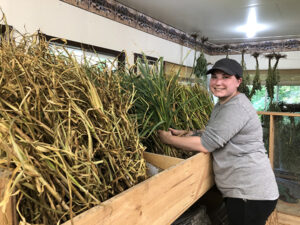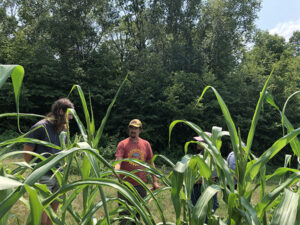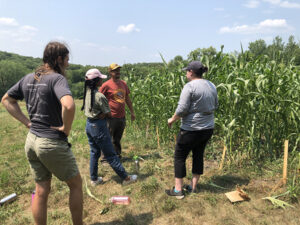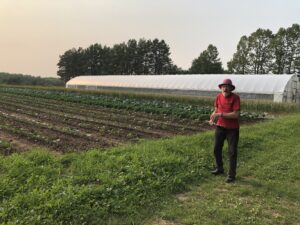Sustainability can improve the quality of our lives, protect our ecosystems, and guard our natural resources beyond our seven generations. The Environmental Sustainability Certificate provides students with hands on experience in sustainability and sustainable systems that will influence future growth, study, and employment. In courses for the certificate, students will learn everything from organic farming practices to renewable energy systems.
The Environmental Sustainability Certificate at Fond du Lac Tribal & Community College is centered in Indigenous knowledge and practices. Throughout their studies in this certificate program, students will learn about Anishinaabeg Gikendaasowinan (the People’s way of knowing) as it relates to environmental sustainability, through the Seven Grandfather’s Teachings and Gidizhitwaawinanin (the cultural standards of the People).
The Environmental Sustainability Certificate is meant to showcase the ways in which Sustainability can help mitigate the local, national, and global effects of climate change and environmental degradation.
Upon completion of the certificate, students will have hands on experience with sustainability practices, sustainable system development, and be able to apply those concepts and practices to further study, and employment. Relevant areas of study include organic farming practices and seed keeping, Native cosmologies, and renewable energy systems. Students engage in hands on demonstrations, farm, field and business tours, and Indigenous expert led lectures.
Supported in the cultural standard Aangwaamiziwin, which focuses on diligence and caution, and in the cultural standard Gwayakwaadizin, to live in a balanced way, students develop a capacity to identify and reflect on the ethical dimensions of both, historic and current political, social, and personal contexts as it relates to environmental sustainability. This certificate is designed to help students broaden their understanding through an Indigenous lens and provides them with tools to mitigate the local, national, and global effects of climate change and environmental degradation.
The importance of environmental sustainability cannot be understated – it has the potential to improve lives, protect ecosystems, and guard natural resources beyond the next seven generations
Students that receive the Environmental Sustainability Certificate will be prepared for a wide range of exciting careers. There is a strong growth rate in the sustainability sector projected at 8% leading up to 2030 (USDA Bureau of Labor Statistics)
Jobs related to the Environmental Sustainability Certificate:
- Urban Planner
- Landscape Architect
- Soil Conservationist
- Environmental Geologist
- Environmental Consultant
- Organic Farmer
- Ecologist
- Air Quality Engineer
- Agroforester
- Sustainability Program Coordinator
- Watershed Manager
- Wetland Specialist



